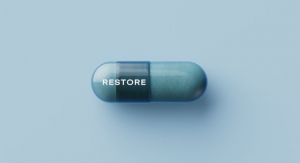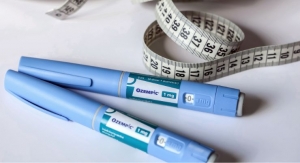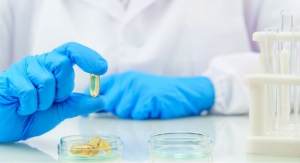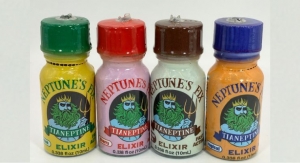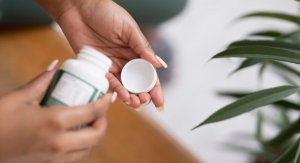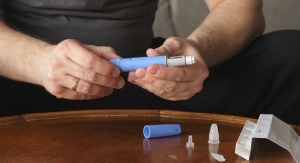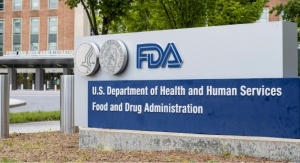09.19.13
The peer-reviewed, quarterly journal HerbalGram, of the nonprofit American Botanical Council (ABC), Austin, TX, has published a report that examines how companies navigate the U.S. Food and Drug Administration’s (FDA) dietary supplement rules and regulations for current Good Manufacturing Practices (cGMPs). Further, the article offers advice as to how manufacturers should go about selecting a contract analytical laboratory, as well as how to avoid fraudulent “dry labs.”
The process of navigating cGMPs requires supplement manufacturers to be highly diligent in compliance, especially in the case of selecting contract analytical laboratories to verify the authenticity and quality of raw materials and finished products. In an industry all too familiar with the problem of accidental or intentional adulteration, choosing a reputable contract analytical laboratory is vital to ensuring high-quality and accurately identified botanical materials, explained the report.
Since many herb and other dietary supplement manufacturers do not have — and are not required to have — analytical laboratories on site, they must outsource required analyses of raw materials to third-party laboratories. These contract labs provide an extensive range of testing services. The report suggests that manufacturers should begin the selection process by identifying their particular needs and matching them with a lab that specializes in the appropriate methods.
“Determining the proper identity, authenticity, and lack of adulteration of all botanical materials that are known to be adulterated is an important part of maintaining proper Good Manufacturing Practices, as required by federal law,” said Mark Blumenthal, founder and executive director of ABC, and editor-in-chief of HerbalGram. “ABC is grateful to the authors for their article, which can help herbal manufacturers and others understand the key issues in choosing analytical services from contract laboratories.”
Included in the HerbalGram article is a table of seven basic tips for selecting a contract laboratory. Of particular concern is the possibility of contracting with an illegitimate “dry lab,” which provides fabricated yet plausible testing results without actually analyzing the supplied material. The term became part of public parlance after a Dateline NBC exposé of the practice aired in 2012.
The federal government does not have specific regulations for contract laboratories used by the dietary supplement industry. Manufacturers might find labs with third-party accreditations and documented standard operating procedures to be suitable for their needs. Importantly, manufacturers also must ensure that contract labs meet all relevant requirements of dietary supplement cGMPs in order to pass FDA inspection. Although the legal context is somewhat vague, labs should be able to provide evidence that their testing methodologies are “appropriate and scientifically valid” and “appropriate for their intended use.”
Finally, the authors discuss some of the main areas of consideration when evaluating testing reports and also provide a number of warning signs of potential dry labs. As a contract lab is considered essentially an extension of the manufacturer, companies must be committed to qualifying, auditing, and inspecting contract labs to ensure the highest quality products for their customers, the authors conclude.
The HerbalGram article was written by natural products chemist Paula M. Brown, PhD, director of the British Columbia Institute of Technology’s Natural Health and Food Products Research Group; pharmacognosist Joseph M. Betz, PhD, director of the Analytical Methods and Reference Materials program at the National Institutes of Health’s Office of Dietary Supplements; and Frank L. Jaksch, Jr., co-founder and CEO of ChromaDex Corporation, a third-party supplier of analytical services to the dietary supplements, sports nutrition, food and beverage, cosmetic and pharmaceutical markets.
The process of navigating cGMPs requires supplement manufacturers to be highly diligent in compliance, especially in the case of selecting contract analytical laboratories to verify the authenticity and quality of raw materials and finished products. In an industry all too familiar with the problem of accidental or intentional adulteration, choosing a reputable contract analytical laboratory is vital to ensuring high-quality and accurately identified botanical materials, explained the report.
Since many herb and other dietary supplement manufacturers do not have — and are not required to have — analytical laboratories on site, they must outsource required analyses of raw materials to third-party laboratories. These contract labs provide an extensive range of testing services. The report suggests that manufacturers should begin the selection process by identifying their particular needs and matching them with a lab that specializes in the appropriate methods.
“Determining the proper identity, authenticity, and lack of adulteration of all botanical materials that are known to be adulterated is an important part of maintaining proper Good Manufacturing Practices, as required by federal law,” said Mark Blumenthal, founder and executive director of ABC, and editor-in-chief of HerbalGram. “ABC is grateful to the authors for their article, which can help herbal manufacturers and others understand the key issues in choosing analytical services from contract laboratories.”
Included in the HerbalGram article is a table of seven basic tips for selecting a contract laboratory. Of particular concern is the possibility of contracting with an illegitimate “dry lab,” which provides fabricated yet plausible testing results without actually analyzing the supplied material. The term became part of public parlance after a Dateline NBC exposé of the practice aired in 2012.
The federal government does not have specific regulations for contract laboratories used by the dietary supplement industry. Manufacturers might find labs with third-party accreditations and documented standard operating procedures to be suitable for their needs. Importantly, manufacturers also must ensure that contract labs meet all relevant requirements of dietary supplement cGMPs in order to pass FDA inspection. Although the legal context is somewhat vague, labs should be able to provide evidence that their testing methodologies are “appropriate and scientifically valid” and “appropriate for their intended use.”
Finally, the authors discuss some of the main areas of consideration when evaluating testing reports and also provide a number of warning signs of potential dry labs. As a contract lab is considered essentially an extension of the manufacturer, companies must be committed to qualifying, auditing, and inspecting contract labs to ensure the highest quality products for their customers, the authors conclude.
The HerbalGram article was written by natural products chemist Paula M. Brown, PhD, director of the British Columbia Institute of Technology’s Natural Health and Food Products Research Group; pharmacognosist Joseph M. Betz, PhD, director of the Analytical Methods and Reference Materials program at the National Institutes of Health’s Office of Dietary Supplements; and Frank L. Jaksch, Jr., co-founder and CEO of ChromaDex Corporation, a third-party supplier of analytical services to the dietary supplements, sports nutrition, food and beverage, cosmetic and pharmaceutical markets.

